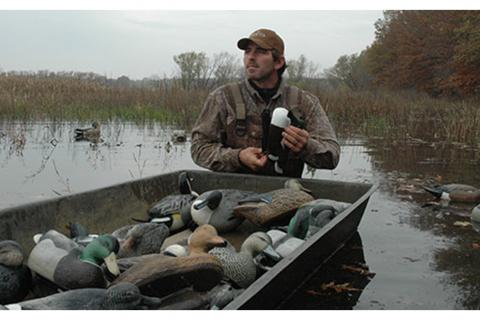
Polite, Effective Ways To Ask For Permission To Hunt
It’s true. There are some incredible public-land waterfowling opportunities scattered across this great nation of ours. Take, for instance, the Columbia River. Or Kansas’ Cheyenne Bottoms. The Mississippi. California’s refuge system. The Chesapeake Bay. Some hunters spend their entire duck hunting careers on these open-to-anyone waters, and wouldn’t think of going anyplace else.
Even so, I’ve enjoyed many memorable waterfowl hunts on private lands from coast to coast.
What’s nice about gunning a private wetland? Well, there’s no getting up at midnight, only to wait in line on the off-chance you might gain access to one of the available blinds. It’s quite nice to walk into a blind some 30 minutes prior to legal shooting time, throw out my two dozen decoys, pour myself a cup of coffee, scratch the dog behind the ears, and watch the sun paint the horizon pink. It’s nice, too, not listening to a symphony of duck callers or watching the dreaded long-distance shooters unload on singles and pairs cruising by their spread at an obviously out-of-range 100 yards.
Unless you own a great duck-hunting property, you’re going to need to find one and then gain hunt permission, either written or verbal, from the landowner.
I’ve been hunting ducks and geese on private holdings since I began waterfowling in 1974. Yes, I’ve been turned away with a negative response on more than one occasion, even having one gentleman in Washington state not-so-politely decline my request before I ever stepped out of the truck; however, my track record at gaining access to private ground has, at least in my mind, been more positive than otherwise. How do I do it?
First, let’s assume we know the name of the landowner and, thanks to the county assessor’s website, his or her address. I’ll approach the request initially in an indirect way. The indirect method involves first writing a polite, grammatically correct letter of introduction and intent to the landowner. Here, I tell them who I am, and what it is I’m looking to achieve. It’s important at this point to provide them with a similarly polite way of saying no. I’ll provide my contact information, including address and cellphone number, and should they wish not to be bothered with my asking or, for whatever reason, don’t allow hunting, to call and let me know of their wishes. If they do call in the negative, I thank them for their time and don’t press the issue. Here, it’s case closed.
If, however, I don’t get a telephone call, I proceed to the direct method, which involves a face-to-face meeting at the home or property. A couple things to note here. One, dress for the occasion. I’m not suggesting a tuxedo, but at the very least, clean britches and a nice shirt. I don’t wear camouflage or hunting clothes when I ask permission for private access. The chances are good these folks know why I’m there, and I don’t have to telescope my intentions before I ever get out of the truck. Two, if the landowner is in the ag-business, works livestock, is lying underneath a piece of machinery with a wrench in his hand, or otherwise appears preoccupied, be smart and come back another time.
When the time comes and you have a minute with the landowner, shake hands, introduce yourself again, and, as I do, remind them of your letter.
Explain what you want to do and, if they agree to provide access, immediately ask them about any restrictions, including shooting hours, no-hunting days, building blinds, driving on the property, parking or bringing a hunting companion, they wish to impose.
I always provide the landowner with a description of any vehicles I might have on their property, including a license plate number. And don’t forget, at some point in the season, to hand deliver a homemade apple pie, spiral-cut ham, or something to say thank you. Believe me, such gifts go a long way.
- 2815 views

